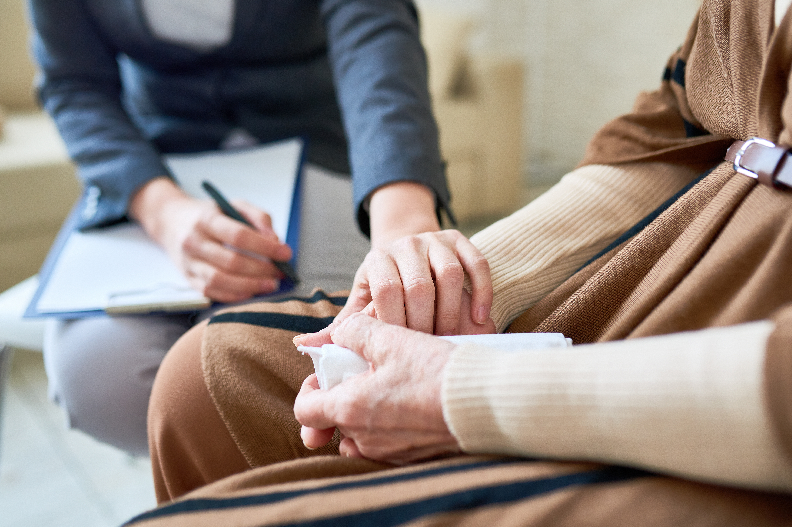August 30 is National Grief Awareness Day, and while discussing painful loss can be quite difficult, it’s important to raise awareness to this natural part of life. Although the loss of loved ones has happened since the beginning of time, research and true understanding of grief did not begin until the early 1900s. Due to improvements in physical and mental healthcare, grief is understood far differently today than it was less than 100 years ago. Whether you have lost a loved one, are currently grieving, or hoping to better support a friend who is grieving, read on for 5 important facts about grief:
- Grief looks different for everyone. In 1969, the now famous “5 Stages of Grief” were introduced. In recent years, doctors and psychologists have come to see grief as something complex and multi-faceted. While the 5 steps provided useful verbiage for the feelings commonly processed during grief, they also create an expectation that isn’t always fulfilled. The truth is, we all grieve differently. There is no magic number of months before grieving ends, no guidelines for how it is supposed to look. Not everyone cries in the face of loss, and that is okay. It is important to accept the pain and understand that the grieving process is unique to each person.
- Grief can be a rollercoaster. Instead of a series of steps or stages, it may be beneficial to imagine grief as a rollercoaster. There are moments of peace and calm, ups and downs. Grieving people often experience joy and laughter as well as deep hurt. This broad spectrum of feelings and bouts of emotions can last for years after loss. It is a normal part of the grieving process.
- Grief can cause physical symptoms. Our bodies are interconnected. The wellness of your heart and mind impact the way your systems function, so it’s no wonder that grief can affect us physically. Grief is linked to inflammation, joint pain, headaches, cardiovascular issues, insomnia, and digestive problems. It can also lower immunity, making us more susceptible to illness. During seasons of grief, it is important to practice self-care and allow loved ones to care for you in times of distress.
- Grief can lead to depression. Grief played out in daily life looks very similar to depression. With both, people cry, feel sad, struggle to sleep, and may have little to no appetite. They often lack motivation or desire to do anything. For many years, doctors were cautioned to not diagnose someone as depressed if they had lost a loved one within a calendar year. But maybe grief and depression go more hand-in-hand than we think. The main difference is the level of support. If you have a loved one who is grieving, draw near to them. If you are grieving, allow people in your life to draw near to you. It is your best guard against slipping into a prolonged depression throughout your grieving process.
- There is help available and hope for healing. Everyone grieves differently, there is no one-size-fits-all when it comes to loss. The important thing to remember is that there is hope for healing, and you’re not alone in your grief journey. Here at Family Healthcare of Siouxland, we offer Social Services on-site as part of our clinics. We realize that the mental and emotional health of our patients is just as critical as their physical health. If you are walking through loss currently, please make an appointment to see one of our licensed Social Workers, who are ready and willing to assist your healing process.
Grief is not linear, nor is it predictable. Today as we celebrate National Grief Awareness Day, let’s all pause to consider who in our lives or social circles may need a hug or word of encouragement as they navigate life after loss. Together, we can take healing steps! Please reach out to us today to speak with one of our licensed Social Workers about grief.


